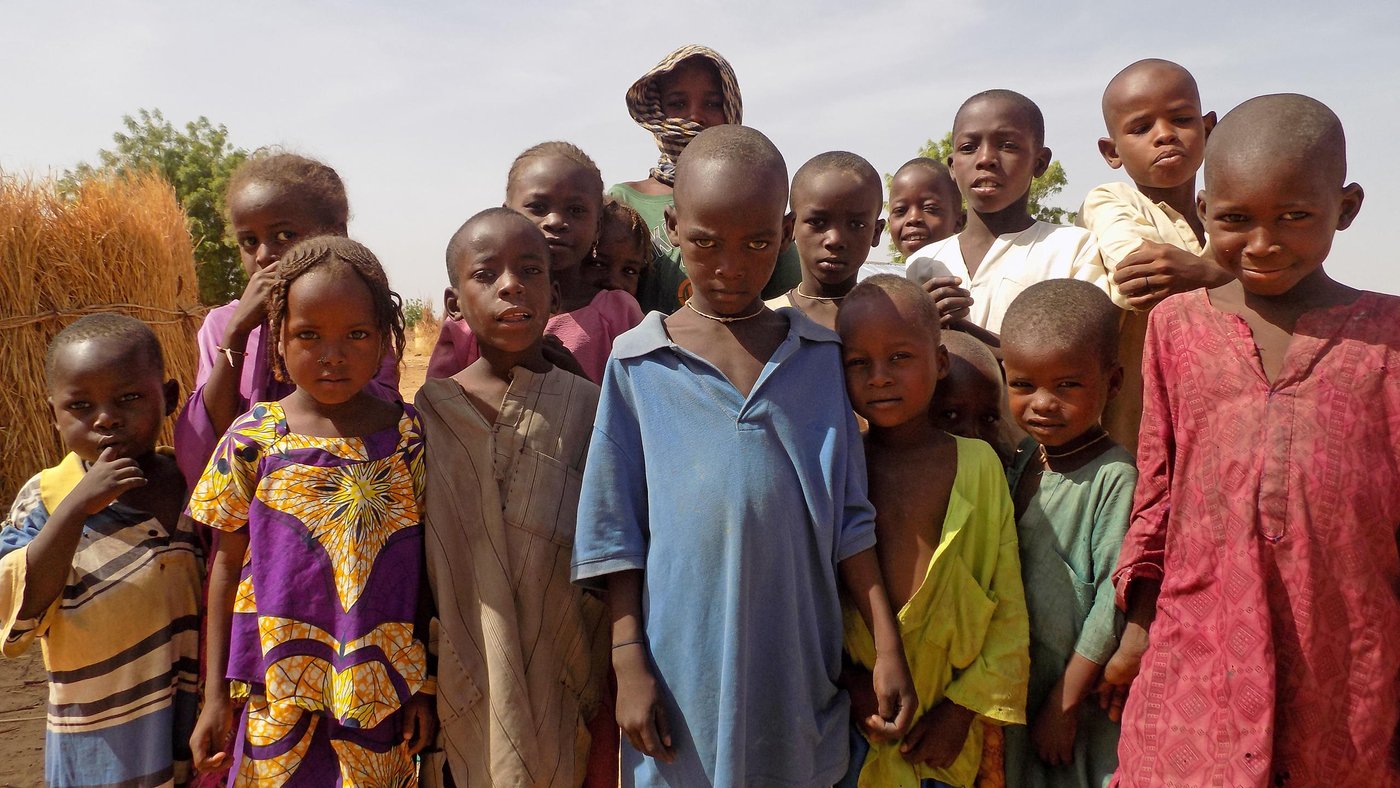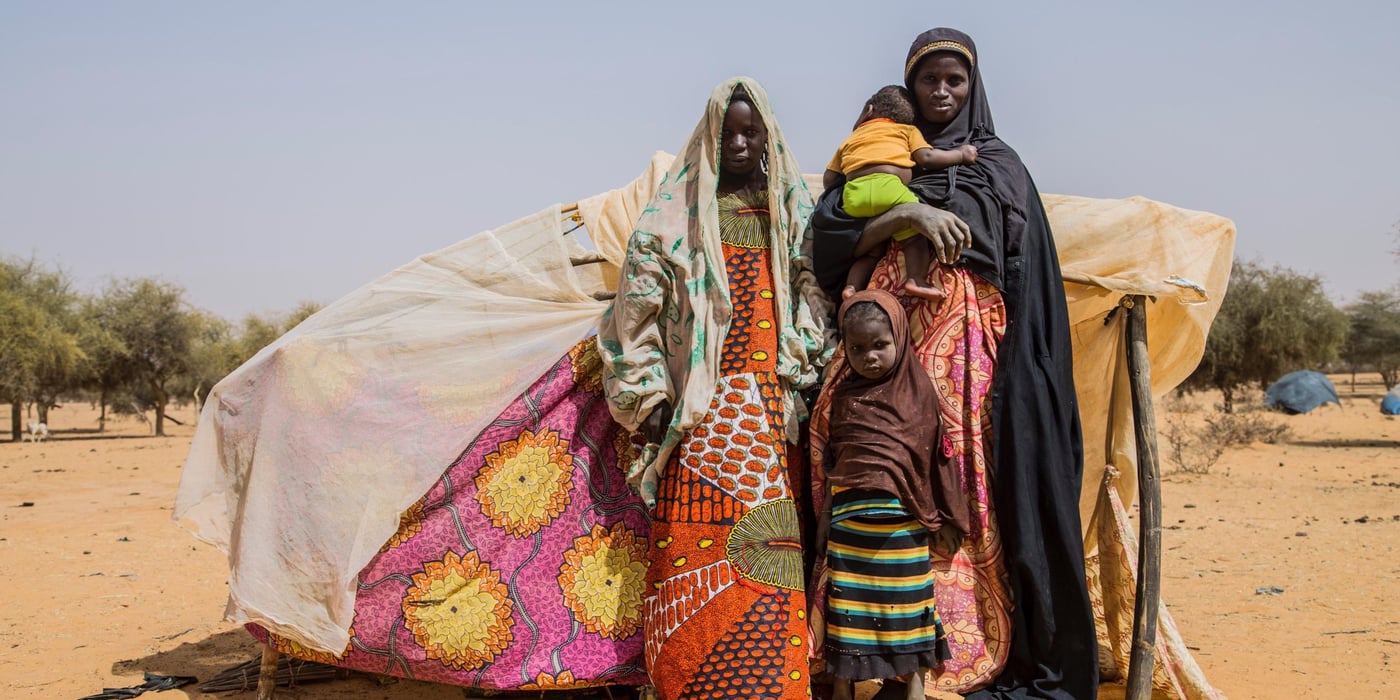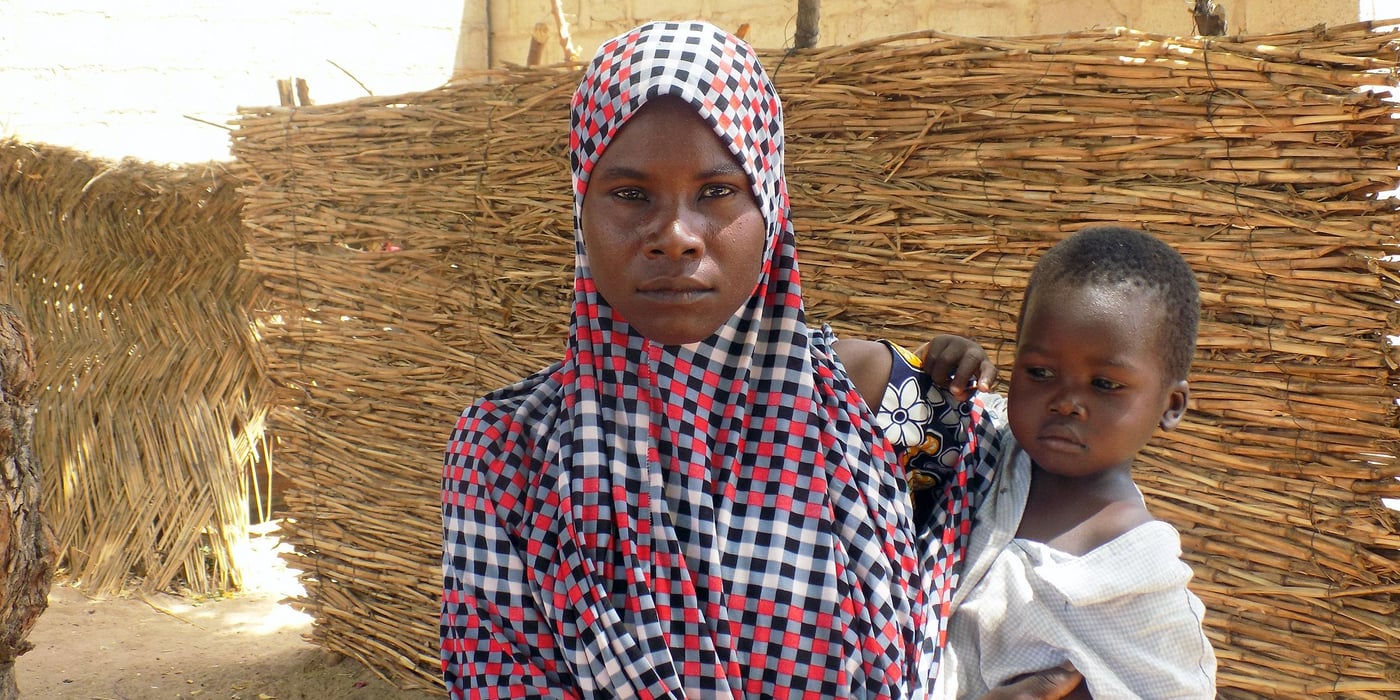
Kaltima survives on one meal a day
Kaltima lives in a settlement for internally displaced people in Maiduguri, the capital of Borno State in north-east Nigeria. She holds her son as she is looking for shade to avoid the intense sub-Saharan sun.
"I have six children. My husband was killed by Boko Haram. I am lucky I know some relatives here, who can help me.”
Despite recent influx of humanitarian aid, the needs in Borno State remain overwhelming. About 8.5 million people are in need of humanitarian assistance, of which 4.7 million are estimated to be food insecure.
Now we live on one meal a day. Often there are days where we have nothing to eat.Kaltima, internally displaced in Borno State
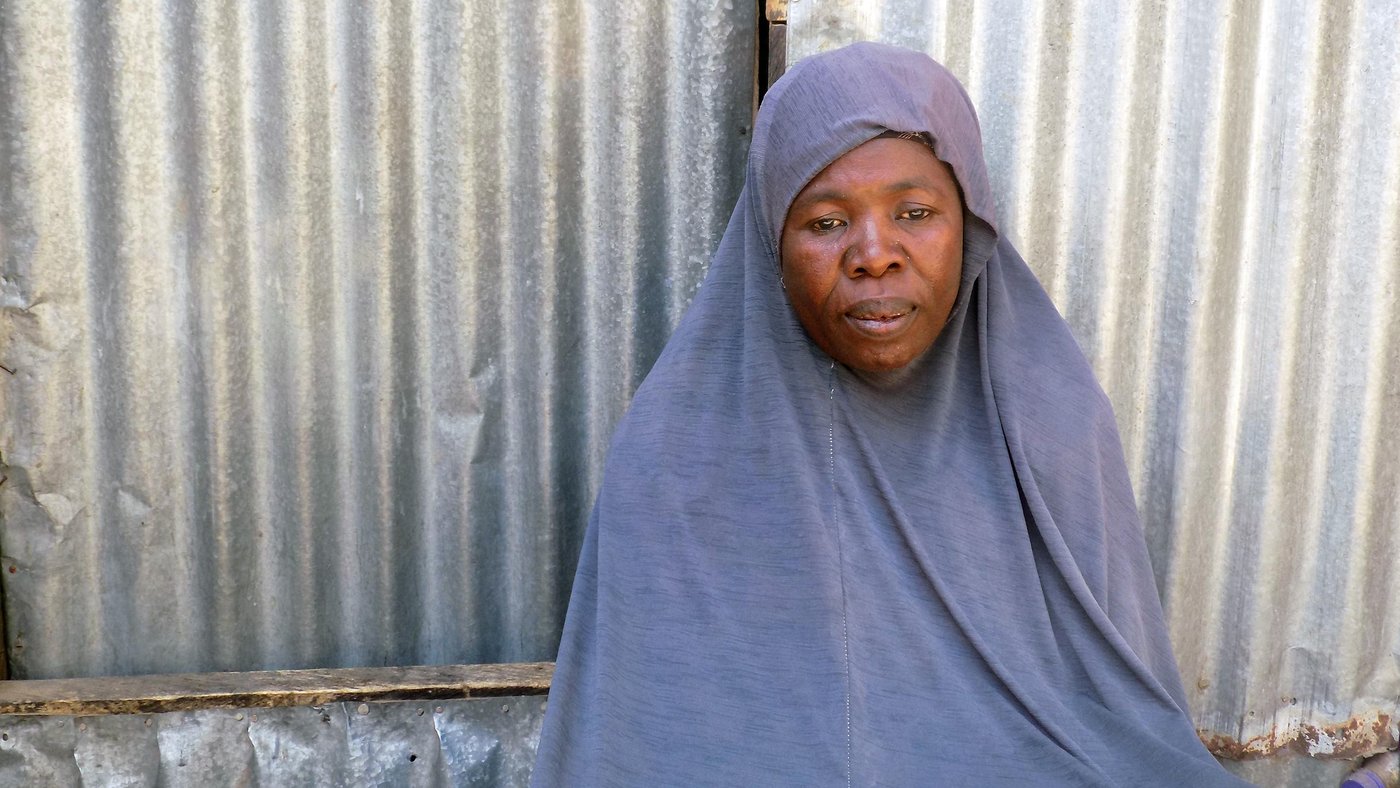
Fathi was kidnapped by Boko Haram
"Even if I had a choice, I would never go back," says Fathi.
She is from Pulka, in southern Borno State, and arrived in Maiduguri a year ago.
While Fathi was kidnapped by Boko Haram, four of her children went missing. One evening she managed to escape, and found that her husband had been killed by the militant group.
She tries not to think about her time in captivity.
"There are too many good memories of my husband and the happier days in my life. I had a nice life."
She arrived in Maiduguri alone, unable to earn a living. "I had no choice but to remarry. Nothing will ever be the same."
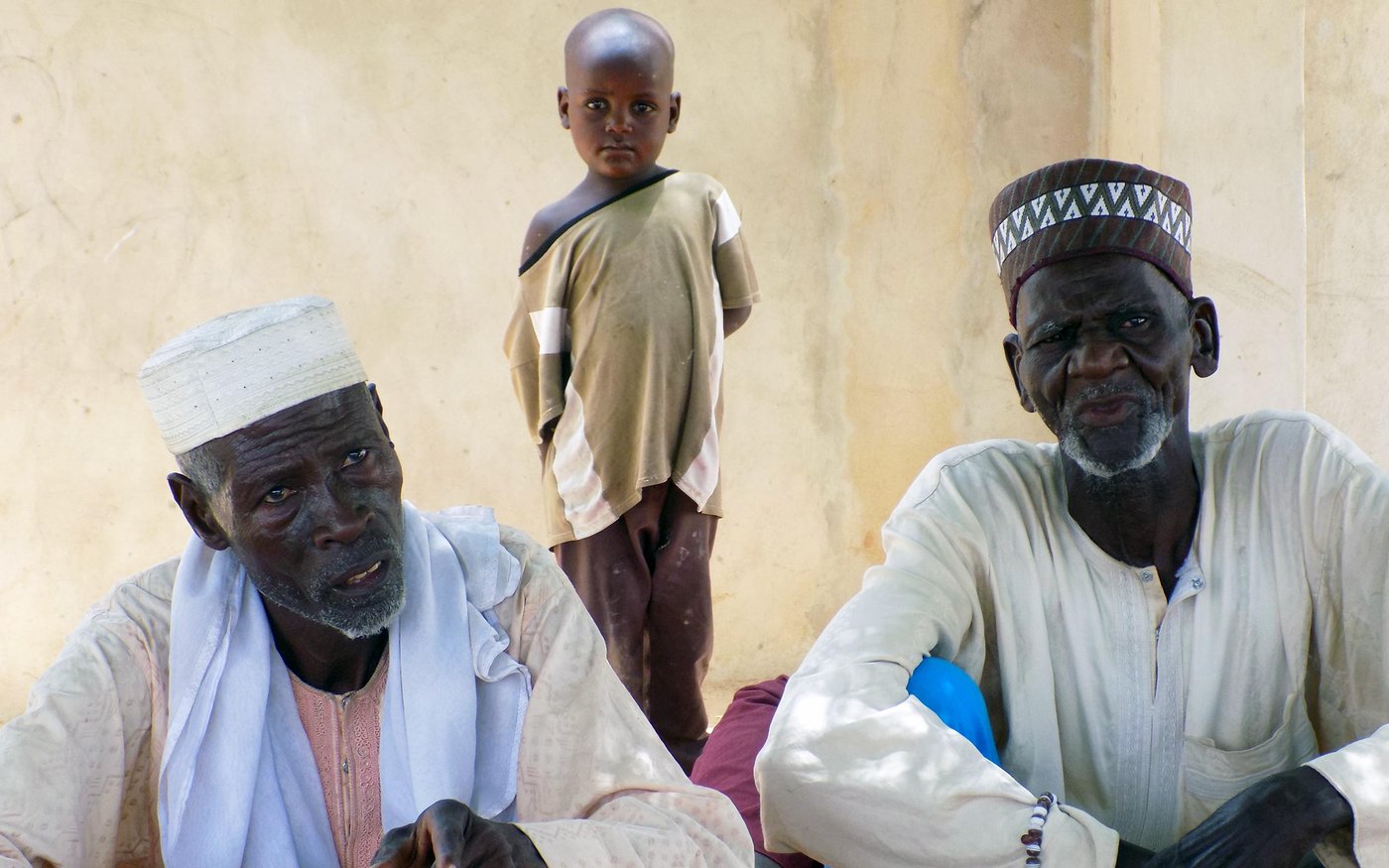
Ahmad worries about his children
"We worry for our children most. Without schools and anything to eat, what life will they have?" asks Ahmad, a community leader in Lambu, old Maiduguri.
He sits together with a group of men under a tree, all from Marte, a town hundreds of kilometres away from the displacement camp they now call home.
"We fled with many families together, so we could help each other to make the journey. We arrived in Maiduguri with nothing. The Norwegian Refugee Council provided us with water, shelters, latrines and bathing shelters. We have some of our dignity back, we are so grateful," Ahmad says.
"We are hungry. We are seeing children being sent to beg. It is no life," he adds.
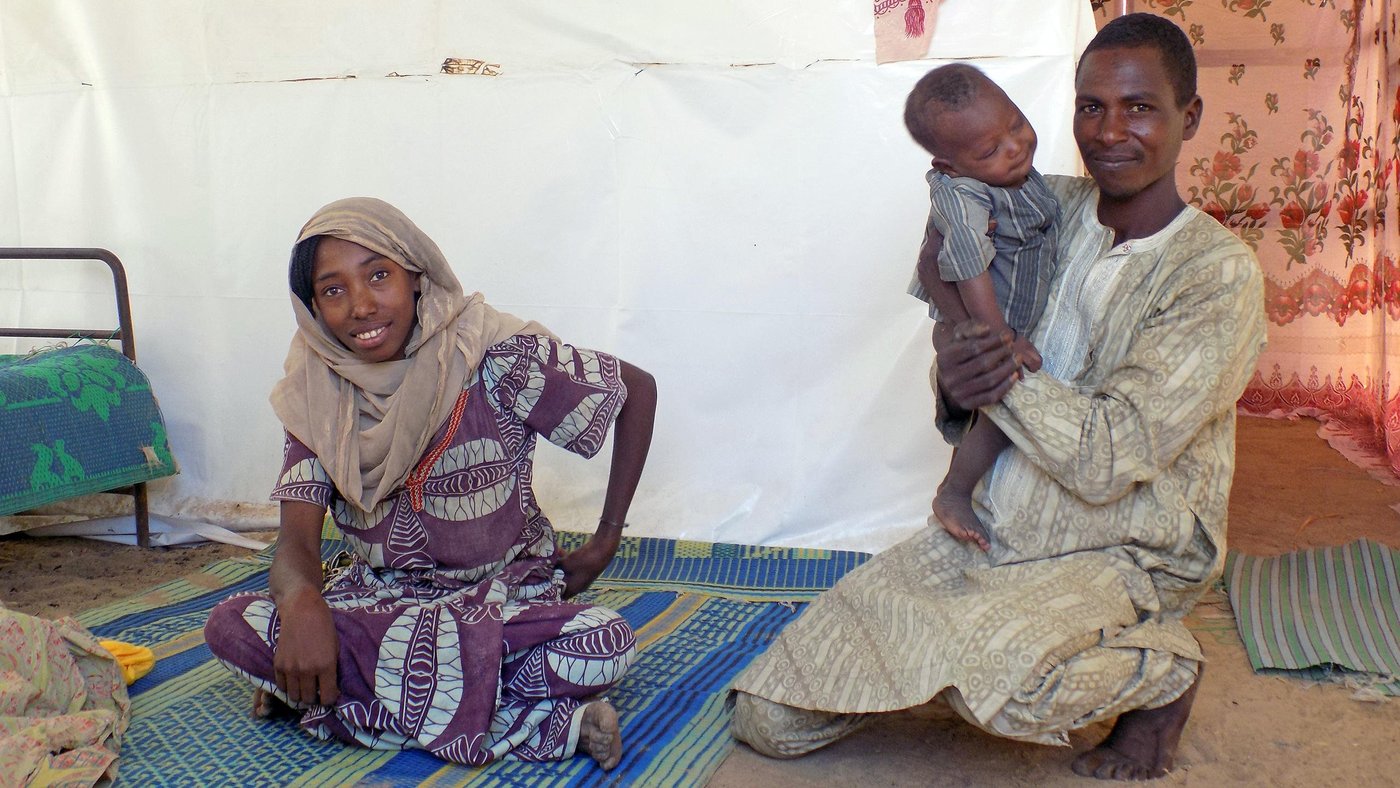
Ibrahim lost his farm
Ibrahim and his wife came to Maiduguri three years ago. "We would go back if it was safe, if things were the way they were before. I had a farm but Boko Haram stole my animals and land,” he explains.
“I miss our life on the farm and grazing the animals."
Some days, Ibrahim worries that there is not enough food to feed their one-year-old son. There are currently 1.2 million malnourished children under the age of five in Borno State.
“In addition to food assistance, shelter, water and sanitation, infrastructure needs remain a concern, especially in light of the upcoming rain season,” says Cheick Ba, Norwegian Refugee Council’s country director in Nigeria.
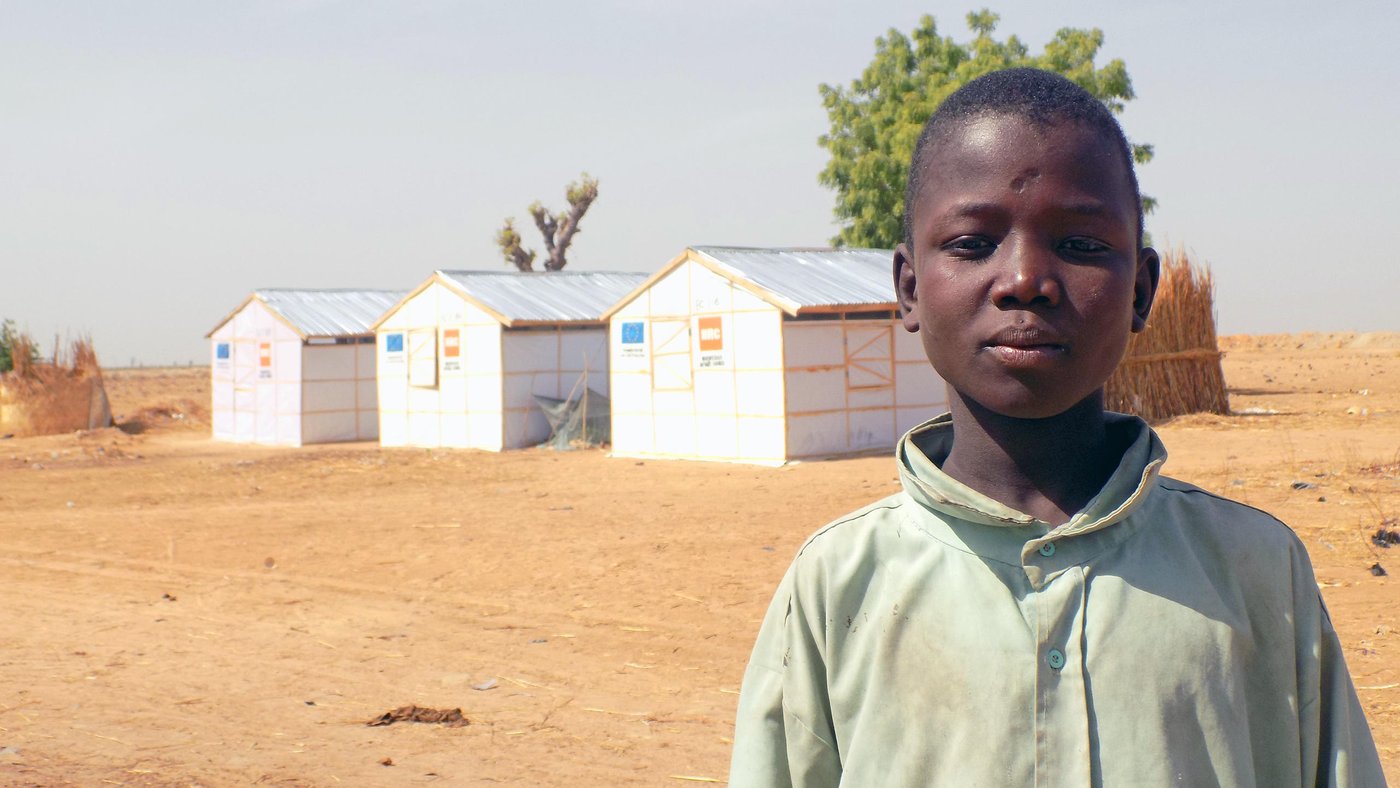
Hassan dreams of going to school
"I want to become a doctor so I can help my family," says Hassan (10). He fled together with his parents and five siblings from Konduga, 40 kilometres from Maiduguri, when he was eight.
Hassan's eyes turn sad when he thinks of the time he had to leave his home. "We had animals, but Boko Haram took all of them."
I want to become a doctor so I can help my family.Hassan (10), internally displaced in Borno State
